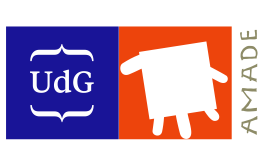14 Nov THERMOPLASTIC MATERIAL ALLOWABLE GENERATION USING A RELIABILITY-BASED VIRTUAL MODELING PLATFORM
.
TREAL, a project funded by the Clean Sky 2 Joint Undertaking, aims at developing an efficient framework to generate material allowables for thermoplastic based composite materials, starting from material characterization to the generation of virtual design allowables. The project commenced on the 1st of October, and will focus on the manufacturing and experimental characterization of thermoplastic composite materials, followed by reliable analysis models to predict the damage scenario. In the last part, efficient uncertainty quantification and propagation methodologies will be developed to obtain reliable material and design allowables. The project was launched officially on the 14th of November in Girona, Spain.
Girona, 14 November 2019 – This month marks the commencement of a new research and development project in the aeronautical sector coordinated by the research group AMADE (University of Girona). Financed by the Clean Sky 2 Joint Undertaking and in the framework of Horizon 2020 program, TREAL project aims to develop an efficient framework to generate material allowables for the thermoplastic composites materials. The project consortium is composed of four partners: Airbus, AMADE research group from the University of Girona who has significant experience in the testing and characterization of composite materials, followed by University of Porto, equipped with modern manufacturing technologies for composite materials along with the experience of developing novel damage models and finally MSC e-Xstream, a software provider with years of experience with state-of-the-art multi-scale material models and developing user-friendly tools for the generation of design allowables.
The main objective of the project is to generate material allowables for thermoplastics using a reliability based virtual modeling platform, which involves manufacturing and experimental characterization of the thermoplastic composites followed by development of numerical analysis models and generation of uncertainty quantification methodologies to obtain reliable material allowables.
Contact:
Albert Turon, PhD
+34 972 418 492



